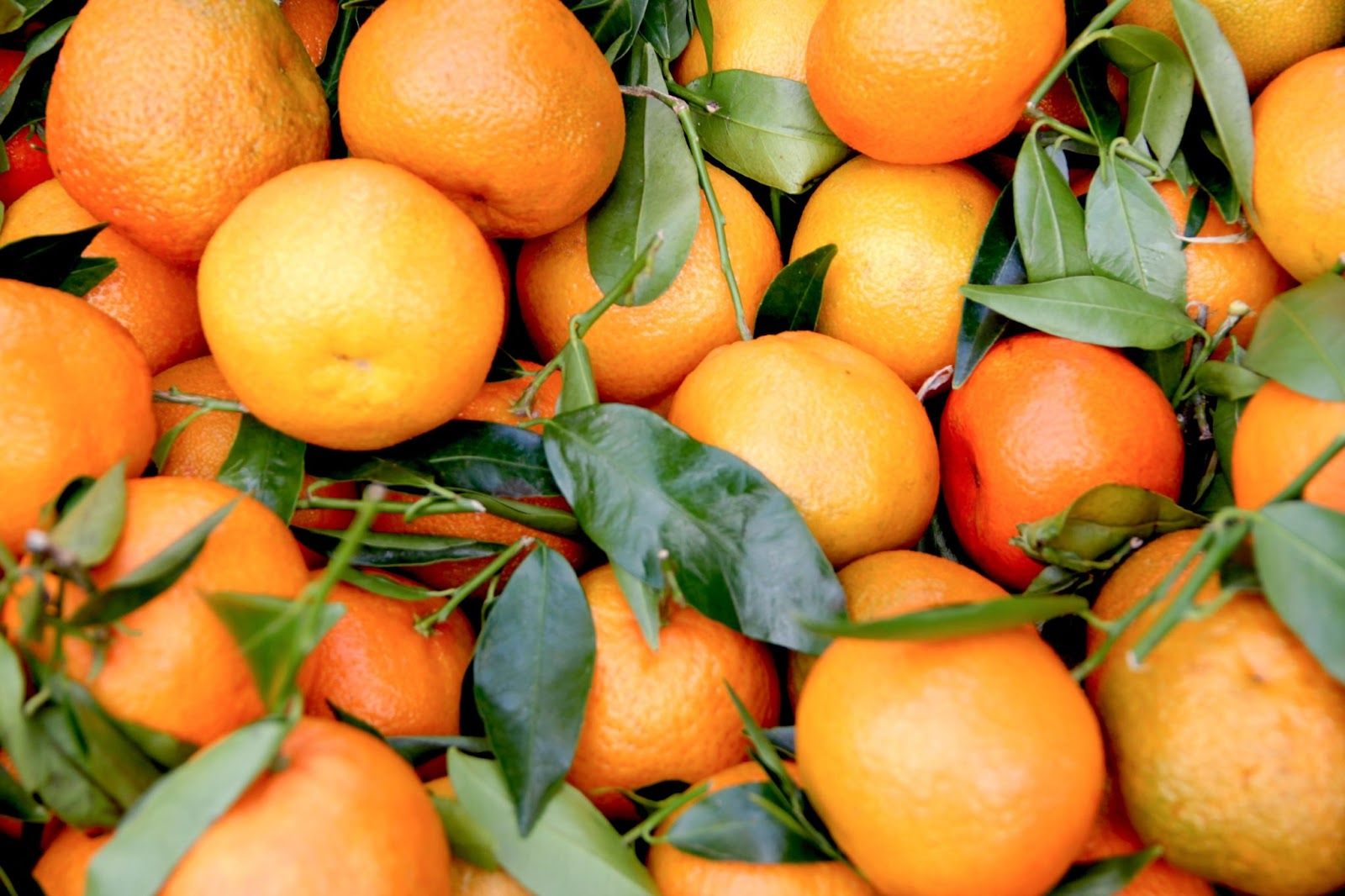Navigating the world of canine nutrition can often feel like navigating a minefield, especially when it comes to the assortment of fruits we humans enjoy. Among these, citrus fruits, such as clementines, are a frequent subject of debate. This article aims to provide a comprehensive guide on whether dogs can consume clementines and other citrus fruits safely.

We'll delve into the nutritional content, potential benefits, risks, and precautions that dog owners should be aware of, ensuring you have all the necessary information to make an informed decision about incorporating these vibrant fruits into your dog's diet.
Can Dogs Have Oranges or Cuties?
According to PetMD.com, “Dogs can eat tangerines and clementines. In fact, dogs can eat all kinds of oranges, including mandarins and Satsuma oranges.” Clementines and other oranges are non-toxic and safe for dogs to eat. However, dogs with preexisting health conditions like obesity and diabetes should definitely avoid oranges because of their high sugar content.
Even if your dog isn’t overweight or diabetic, the sugar content and the acidity of a clementine or other orange can cause your dog to have stomach upset like gas, diarrhea, or vomiting. And if your dog already has a sensitive stomach, it’s best not to give them any type of orange.
How Much of a Clementine Can a Dog Eat?
If your dog doesn’t have any other health issues, they should be fine with eating just a little bit of clementine. But start with a small piece to see how they react. Remember that the sugar, acidity, and calories can still have an undesired effect on healthy dogs if you feed them too much, or if this is a part of their regular diet.
Treats and snacks of any kind, even something healthy like a piece of fruit, should only make up 10% of your dog’s diet. The other 90% should come from their nutritionally-balanced dog food. Feeding your dog too many treats can cause obesity, diabetes, and other problematic health issues.

Health Benefits of Clementines and Other Oranges
“Oranges are full of nutrients, potassium, and some fiber, and they are low in sodium, which makes them a healthy snack if given in limited amounts — maybe one or two segments a day. This fruit is also full of vitamin C, which can benefit your dog’s immune system.” If you only give your dog a couple of small pieces here and there, the vitamins and other nutrients can be very beneficial for their health.
Can Dogs Eat Clementine Peels?
As with any fruit, your dog shouldn’t eat the peel or seeds. These can be choking hazards or even cause an intestinal blockage. If your pup has eaten these, especially the peel, please contact your veterinarian immediately.
The American Kennel Club reminds us that “orange peels are not toxic, however they can become lodged in your dog’s digestive tract, causing an obstruction and requiring surgery to correct. It’s best to keep oranges out of your dog’s reach for those reasons.”
Which Fruit is Bad for Dogs?
There are tons of fruits that are completely safe and even healthy for dogs to eat. But there are others that are dangerous and toxic for dogs. And still, some fruits may not be poisonous, but they have poisonous or hazardous aspects to them. And it’s better to just avoid them when it comes to dog treats.
If you’re looking to feed your dog a fruity snack, pick one off of the safe list. And make sure to always remove any skin or rinds, seeds, and cores. And always chop it up into bite-sized pieces, so there’s no concern for a choking hazard. If you are nervous about something your dog ate, please contact your veterinarian right away. And be aware of the signs of poisoning in dogs.
Fruits Dogs Can Eat:
- Apples – vitamins A, C, and fiber
- Bananas – potassium, vitamins, biotin, fiber, and copper
- Blueberries – antioxidants, fiber, and phytochemicals
- Cantaloupe – low in calories, high in fiber, great nutrients, and a great source of water
- Cranberries – safe to feed in small quantities, but too many could cause stomach upset
- Cucumbers – vitamins B1, C, K, potassium, copper, biotin, and magnesium
- Mangos – vitamins A, B6, C, E, potassium, beta-carotene, and alpha-carotene
- Oranges – vitamin C, fiber, and potassium
- Peaches – vitamin A and fiber, but watch out for the pit—it contains cyanide
- Pears – vitamins C, K, fiber, and copper
- Pineapple – lots of vitamins and minerals, but make sure to remove the skin, stem, and core
- Raspberries – low in sugar and contain antioxidants, manganese, vitamin C, and fiber
- Strawberries – vitamin C, fiber, and they contain an enzyme that helps whiten your dog’s teeth
- Watermelon – vitamins A, B6, C, potassium, and tons of water—but make sure to remove the rind and all seeds

Fruits Dogs Can’t Eat:
- Avocados – the pit, skin, and leaves contain a toxin that causes vomiting
- Cherries – Cherry plants contain cyanide, which is toxic
- Grapes & Raisins – very toxic and can cause kidney failure
- Tomatoes – the ripened fruit itself is typically safe, but the green plant is toxic
Are Clementines OK for Dogs to Eat?
Clementines, as well as a range of other citrus fruits, are generally safe for dogs to consume, but they must be given with certain precautions in mind. Firstly, it's essential to remember that the skin and seeds of these fruits are not suitable for your dog. They can pose potential hazards such as choking and intestinal blockage, and should, therefore, be removed prior to feeding.
Secondly, despite their non-toxic nature, clementines and similar fruits are high in sugar. Therefore, they should be given to your dog in moderation to avoid health complications such as obesity and diabetes. Maintaining small, infrequent servings, especially when introducing these fruits for the first time, can help ensure your dog enjoys the treat without facing any negative impacts on their health.
This advice isn't only limited to clementines. Many fruits, while healthy in moderation, can lead to health issues if given in excess or without proper preparation. Therefore, it's always a good idea to familiarize yourself with the dos and don'ts of feeding fruits to your furry friend, ensuring their safety and well-being.
Moreover, while dietary choices form a crucial part of your dog's health, maintaining a regular exercise schedule is equally important. You can use tools such as the Fi Dog Collar to monitor your pet's activity levels and ensure they are getting enough physical exercise to balance out their diet.
Conclusion:
In conclusion, citrus fruits like clementines and oranges can indeed be a part of your dog's diet, albeit with some precautions. Moderation is key due to their sugar content and potential for causing gastrointestinal discomfort. As we've explored, it's important to remove the peel and seeds before serving these fruits to your furry friend, as these parts can present a choking hazard or cause intestinal blockage.
We've also provided a list of other safe and potentially harmful fruits, giving you a range of options for healthful, fruity snacks for your dog. Remember, each dog is unique, and their reactions to different foods can vary. Always start with small portions to observe their reaction, and consult with your vet if you notice any adverse effects.
Moreover, while a healthy diet is essential, so too is regular exercise. Tools like the Fi Dog Collar can aid in maintaining a balanced lifestyle for your pup, tracking their activity, and even assisting in monitoring for any health anomalies.
In the world of canine nutrition, awareness, and knowledge are your best tools. With this comprehensive guide, we hope to have provided a clear understanding of whether dogs can safely eat clementines and other citrus fruits, aiding you in making the best dietary choices for your loyal companion.
For more helpful articles about pet-parenting tips, check out the Off Leash blog at TryFi.com.
Want to know more about TryFi.com? The Fi Dog Collar is a GPS tracking collar that not only keeps track of your dog’s location, activity levels, and sleep patterns, but it also alerts you if your dog escapes your backyard. This is the fastest way to find your dog after an escape. Try the Fi Dog Collar today!





